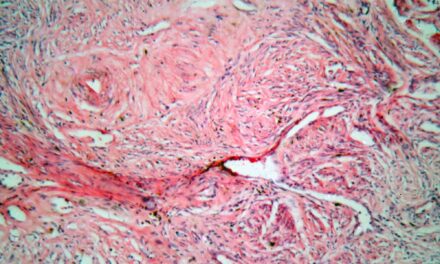A screening tool aims to identify patients at high risk for cancer who may benefit from germline or hereditary DNA testing.
Mercy’s Center for Precision Medicine has launched a screening tool to identify patients at high risk for cancer who may benefit from germline or hereditary DNA testing. The health system is partnering with genetic testing company Tempus to deploy the program across the communities it serves.
The program focuses on hereditary or germline DNA mutations, which can be found in all cells of the body and may increase the risk of developing various health conditions, particularly hereditary cancers. Breast, ovarian, prostate, and pancreatic cancers are most associated with hereditary risk.
“Patients often wonder if there was anything they could have done to prevent their cancers, but many are the result of a genetic mutation passed down through a family,” says Dr Jay Carlson, Mercy medical director for oncology and Mercy Research clinical chair, in a release. “Cancer patients are offered genetic testing for treatment purposes but also to see if they have mutations that could have been passed down to their own children.”
Online Risk Assessment and Testing Process
While anyone can take the online risk assessment, Mercy’s proactive approach sends the online survey to many patients prior to their routine breast cancer screening appointment. The survey assesses family and personal medical history to determine risk of genetic DNA mutations. Patients identified as high risk are contacted and provided more information and offered a blood test covering 77 genes.
The survey also identifies patients who may benefit from more targeted breast cancer screening programs. Approximately 10% of surveyed patients meet high-risk criteria, meaning they qualify for additional annual breast MRI screenings alongside mammograms, according to Carlson.
For patients with concerning genetic mutations, Mercy facilitates broader family risk assessments by offering free testing for 90 days to third-degree relatives. Because of how these genes are transmitted, relatives have up to a 50% chance of inheriting the same problematic gene.
Insurance Coverage and Financial Assistance
The blood test is covered by some insurance companies. For patients whose insurers do not cover the testing, Tempus provides financial assistance.
Based on patient results, healthcare providers may recommend various interventions to reduce cancer risk associated with specific genes.
Mercy operates 55 acute care and specialty hospitals across Arkansas, Illinois, Kansas, Missouri, and Oklahoma. The system includes more than 1,000 physician practice locations and outpatient facilities.
ID 379983409 hihobr | Dreamstime.com




